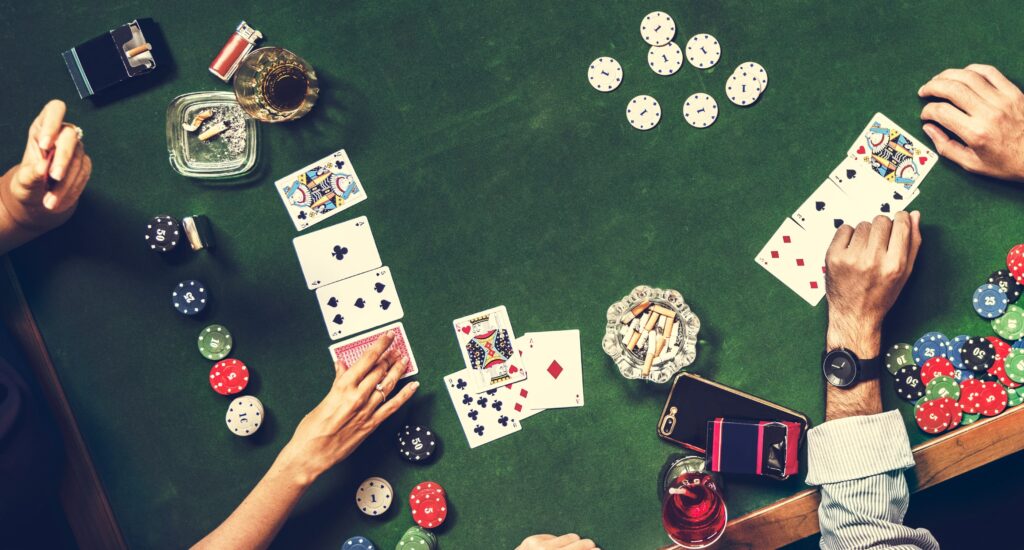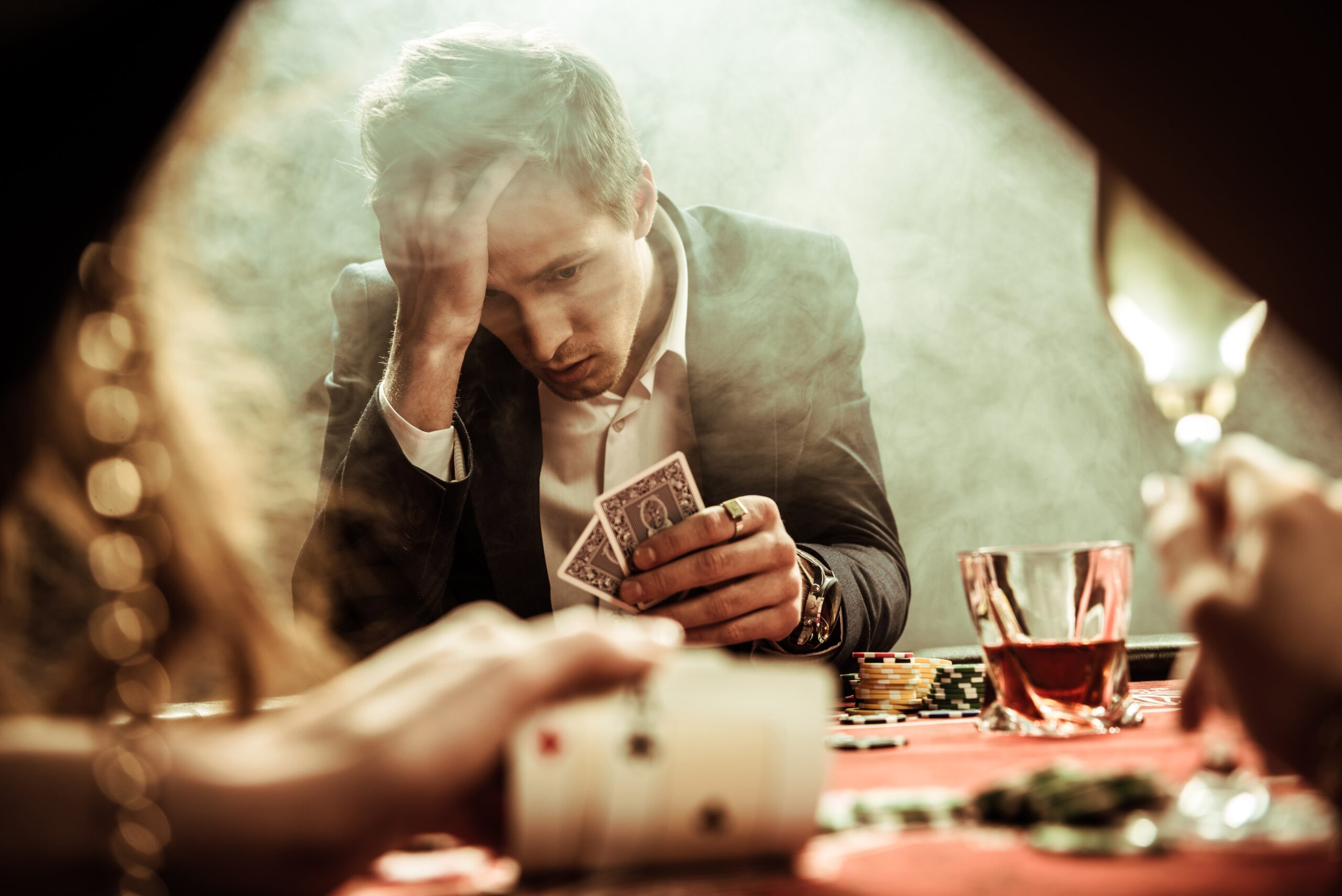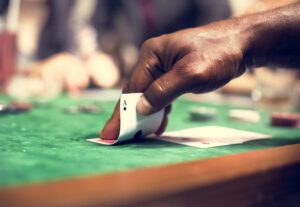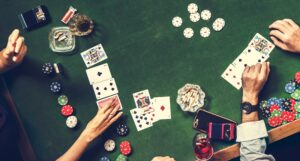The Psychology Of Gambling: Why Do People Love To Gamble?

Have you ever wondered why people are so drawn to the thrill of gambling? What is it about this activity that captivates us and keeps us coming back for more?
Gambling has been a part of human culture for centuries, with its roots dating back to ancient civilizations. It is a multi-billion dollar industry that continues to grow worldwide. Despite the risks involved, millions of people enjoy gambling and are willing to bet their money in the hopes of winning big.
The psychology of gambling is a complex subject that delves into the human mind and its desires. It explores the reasons why people are attracted to gambling, the emotions they experience while participating, and the impact it has on their lives. In this article, we will delve into the fascinating world of gambling psychology and uncover the reasons behind our love for this exhilarating activity.
What is the Psychology behind Gambling?
The psychology behind the world of gambling is a fascinating field of study that sheds light on why people are drawn to this form of entertainment and risk-taking. One interesting observation is the influence of a good mood on increased gambling. Research has shown that individuals in positive moods are more likely to engage in gambling activities, possibly seeking to maintain their positive emotional state or amplify their excitement.
Another psychological phenomenon that affects gambling behavior is the gambler’s fallacy. This is the belief that previous outcomes in a game of chance can somehow predict future outcomes. For example, if a coin has landed on heads multiple times in a row, some gamblers may believe that tails is now more likely to appear. This faulty thinking can lead to irrational betting decisions.
Changing expectations after betting is another aspect of the psychology of gambling. When individuals place bets, their expectations and perceptions of the game can shift. They may become more confident in their chances of winning or develop a stronger belief in their chosen strategy. These altered expectations can further fuel their desire to continue gambling.
The bandwagon effect is also evident in the psychology of gambling. When individuals observe others winning or enjoying success, they may be more inclined to join in and try their luck as well. This social influence can create an atmosphere of excitement and reinforce the belief that gambling can lead to big wins.
Lastly, gambling systems and superstitions play a role in the psychology of gambling. Some individuals believe in specific strategies or rituals that they believe will increase their chances of winning, even when these strategies have no rational basis. These superstitions provide a sense of control and comfort in an inherently uncertain environment.
Overall, the psychology behind gambling is complex and influenced by various factors. Understanding these psychological processes can help explain the allure of gambling and the behaviors and beliefs associated with it.
Gambling Addiction
Gambling addiction, also known as gambling disorder, is classified as a psychiatric disorder due to its similarities to substance addictions. Like substance addictions, gambling addiction involves the compulsive engagement in gambling activities despite negative consequences. Individuals with gambling addiction experience an inability to control or stop their gambling behavior, leading to significant impairment in various areas of their lives.
Prevalence rates of gambling disorder vary among different populations. In general, rates of gambling addiction tend to be higher among certain demographic groups, such as males, younger individuals, and those with lower socioeconomic status. Additionally, individuals who have a history of other psychiatric disorders, such as mood disorders or substance use disorders, may be more susceptible to developing gambling addiction.
The brain mechanisms involved in gambling addiction share similarities with those implicated in drug addiction. Advances in brain imaging technology have shown that gambling activates the same reward circuitry in the brain as drugs of abuse. Both forms of addiction involve the release of the brain chemical dopamine, which is associated with feelings of pleasure and reward. This similarity in brain function helps explain why individuals with gambling addiction may experience cravings and withdrawal symptoms when attempting to stop or reduce their gambling behavior.

Forms of Gambling: A Wide Range of Options
Gambling comes in various forms, catering to different preferences and interests. Traditional forms include fruit machines, horseracing, blackjack, and roulette, offering a classic and immersive experience. However, with technological advancements, newer forms of gambling have emerged, such as internet gambling and electronic gaming machines.
Internet gambling provides convenience and accessibility, allowing individuals to engage in various gambling activities online. It offers a wide range of options, including online casinos, sports betting, poker, and bingo. This form of gambling has gained significant popularity due to its 24/7 availability, anonymity, and diverse game selections.
On the other hand, electronic gaming machines, commonly found in casinos and betting shops, offer a more modern gambling experience. These machines include slot machines, video poker, and electronic roulette, among others. They provide a fast-paced, visually appealing, and interactive gaming experience.
It is worth noting that the popularity of gambling as a recreational activity is widespread. In fact, approximately 70% of the British public engages in some form of gambling each year. The thrill, excitement, and potential for monetary rewards attract individuals to participate in these activities.
Changes in gambling legislation can have a significant impact on the incidence of problem gambling. Stricter regulations, for instance, can limit access to certain forms of gambling and provide more protection for vulnerable individuals. However, it is essential to strike a balance between ensuring responsible gambling and preserving individual freedoms.
Compulsive Gambling
Compulsive gambling, also known as pathological gambling, is characterized by an irresistible urge to gamble persistently despite negative consequences. It shares many similarities with substance use disorders, such as the addictive nature and the potential for detrimental consequences.
One of the key factors contributing to compulsive gambling is the role of dopamine, a brain chemical associated with reward and pleasure. When individuals gamble, their brain releases dopamine, creating a euphoric feeling. Over time, this dopamine release becomes linked to the act of gambling, reinforcing the behavior and making it difficult to resist.
Another contributing factor is uncertainty. Gambling involves an element of unpredictability and chance, which can be highly stimulating. The anticipation of a potential reward activates the brain’s reward circuit, further reinforcing compulsive gambling behaviors.
The concept of “chasing losses” is also prevalent among compulsive gamblers. When individuals experience monetary losses, they often feel compelled to continue gambling in an attempt to recoup their losses. This behavior is reinforced by the intermittent reinforcement schedule of gambling, where occasional wins provide temporary relief and encourage further gambling.
Compulsive gambling can have severe consequences, both financially and psychologically. It can lead to financial ruin, strained relationships, and even mental health issues like anxiety and depression. According to the National Council on Problem Gambling, approximately 2-3% of Americans are affected by compulsive gambling, with higher rates among certain populations such as students and low-income individuals.
Personal Choice & Responsibility in Gambling
Personal choice and responsibility play a significant role in gambling, as individuals are empowered to make decisions and take actions that they believe can influence the outcome. This sense of personal choice gives gamblers a feeling of control over their gambling experience and contributes to their enjoyment of the activity.
In many forms of gambling, individuals are given the opportunity to make choices, whether it’s selecting their own numbers in a lottery or making decisions during gameplay in card games or sports betting. This perception of personal choice can create a sense of agency and empowerment, making the experience more engaging and exciting.
The illusion of control stems from the belief that our choices and actions can positively impact the outcome. Gamblers often rely on their skills, strategies, or lucky rituals to influence the odds in their favor. This illusion can lead individuals to overestimate their control over the outcome and underestimate the role of chance, which in turn drives their gambling behavior.
Near misses, where individuals come close to winning but ultimately fall short, also contribute to the illusion of control. These near misses prolong the gambling experience and increase the length of time and size of bets played. Gamblers interpret these near misses as evidence that they are getting closer to winning, reinforcing the belief that their personal choices and actions matter.
However, it’s important to recognize that while personal choice and responsibility are key factors in gambling, they should not overshadow the risk of harm associated with excessive or compulsive gambling behaviors. It is crucial for individuals to maintain a balanced perspective, exercise self-control, and seek help if gambling becomes problematic.

Conclusion
In conclusion, a comprehensive understanding of the psychology of gambling is essential for developing effective strategies to assist those struggling with gambling addiction. Through a combination of therapeutic interventions, support systems, and education, individuals can be empowered to overcome destructive thought processes and develop healthier coping strategies.





